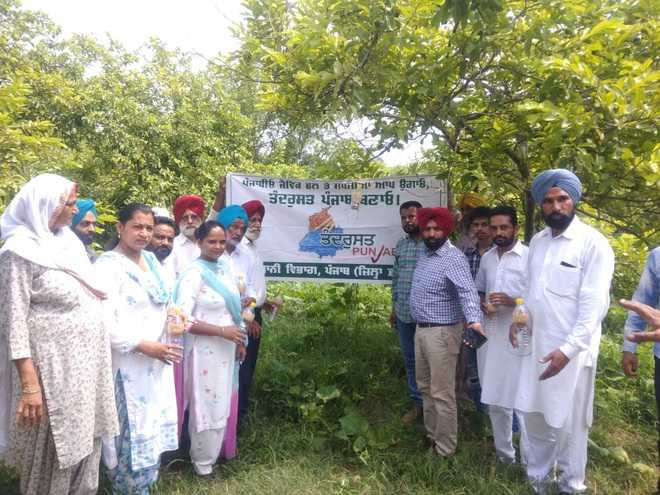Balwant Garg
Tribune News Service
Faridkot, August 1
In the rainy season, the guava crop easily gets infested with fruit flies and it is sprayed with many pesticides. To tackle the pest in an environment-friendly and safe manner without poisoning the highly nutritious fruit, soil and air, the Horticulture Department has started working on a new methodology.
Distributing free-of-cost pheromone lures and traps to help guava orchards, the Horticulture Department is showcasing these cost effective, environment and fruit-friendly technique to tackle the deadly fruit flies in guava, many other fruits and vegetables.
Pheromone lures and traps are a part of an application technology which is extensively being used in many southern and eastern states in the country for the past over 10 years. The technology is used to control the fruit flies attack in fruits. But, its use in Punjab is at a nascent stage.
“The application technology is using insects’ world, which is filled with many odors. Insects use these odors to cue them in a variety of complex social behaviors, including courtship, mating, and egg laying. Using this complex communication systems in the insects, an adult male insect is lured through a female sex hormone mimicking scent prepared in the lab and taken to fields to stop natural mating and thereby prevent reproduction of the next generation of pests,” said Jagdev Singh, Deputy Director, Faridkot Horticulture Department.
While sharing the insects’ odors phenomenon with guava growers, the department also distributed some lures and pheromone traps among them and used these in their orchards on Thursday.
“One liter of plastic bottle size each and 16 traps are sufficient for one acres of guava orchard to save the crop up to 90 per cent. Besides, saving a lot of money, the use of these traps makes value addition to the fruit,” said the Deputy Director.
Sources in the Horticulture and Agriculture Department said the application technology was being successively used in tackling various pests in fruits and vegetables in many parts of the country, but Punjab was lagging much behind in promoting the use of this eco-friendly, inexpensive and safe practice.
In the first year, pheromone traps are useful in protecting up to 80-85 per cent of fruits and vegetables and regular use of these traps led to a gradual increase in the saving of crop from a pest attack.
Though PAU has taken up the task of preparing traps and lures for some time and selling these for Rs 100 each, as the availability of these traps is only at the university, so these could not be promoted in the field, said the sources in the Horticulture Department.
Unlock Exclusive Insights with The Tribune Premium
Take your experience further with Premium access.
Thought-provoking Opinions, Expert Analysis, In-depth Insights and other Member Only Benefits
Already a Member? Sign In Now










